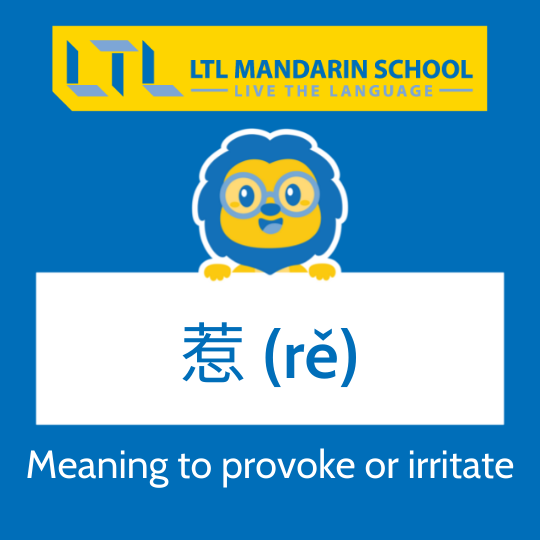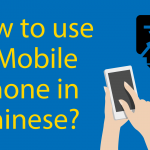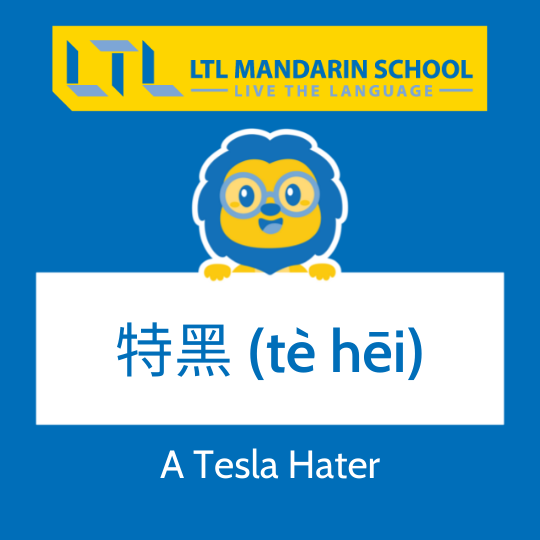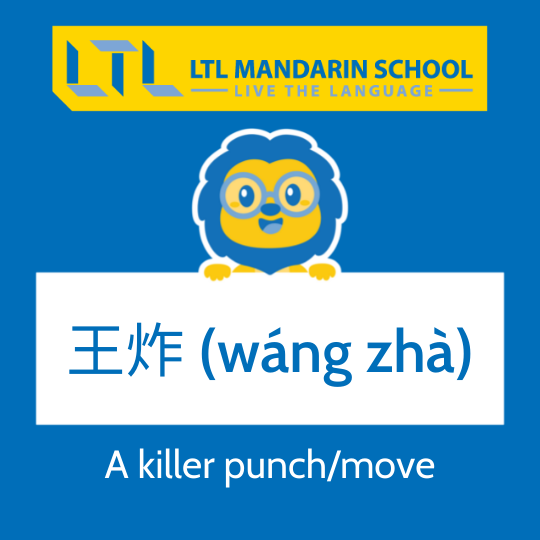New Chinese Slang & Words // BRAND NEW 💬 Words You Never Knew Existed
Chinese Slang, Phrases and Words You Didn’t Even Know
Language is a beautiful thing in the sense that it is always evolving. The same is true of Mandarin, which is exactly what we’ll be discovering today with these very cool Chinese slang, phrases and words.
The inspiration for today’s article comes from a superb newsletter we receive every Saturday called Slow Chinese which has the ethos of “helping long time learners of Chinese maintain, improve and keep on top of latest language trends”.
Slow Chinese is run by a chap called Andrew Methven who collates some of the wackiest and weirdest words, phrases and chengyu from the week, and sends them up to his loyal band of subscribers.
If you wish to become one of those subscribers you can sign up here.
I’ve absolutely loved reading these every Saturday morning, so much so I wanted to share them with you.
Here is an example of one of the newsletters.
You should know all the Chinese slang, words and phrases come directly from his newsletter.
DON’T WORRY – you’ve missed nothing because you can access all previous newsletters on their website archive here.
Chinese Slang & Phrases | 1 Character Words
Chinese Slang & Phrases | 2 Character Words
Chinese Slang & Phrases | 3 Character Words
Chinese Slang & Phrases | Phrases, Idioms & Chengyu
Chinese Slang & Phrases | FAQ’s
Chinese Slang & Phrases | 1 Character Words
惹 (rě)

惹 can mean to provoke, irritate, vex, stir up or anger.
Either way, the connotation is a negative one, so if you see this character, chances are the context isn’t great!
EXAMPLE
那些天生的视力不好惹到你了?
Have some naturally short-sighted people pissed you off?
刷 (shuā)
Some of you may already know the word 刷, for example 刷牙 is to clean/brush one’s teeth.
The meaning of 刷 is to brush/paint.
However it also has an alternate meaning which means to watch or look at a screen.
Therefore using your mobile phone, rather than use the word 看, we can use 刷 instead to level up!
EXAMPLE
我在刷评论,看看大家对我的反馈如何
I was looking at the comments to see what people were saying about me
货 (huò)
Interesting Chinese slang alert here.
Typically 货 means goods, money or commodity, but it’s also become a slang word with a rather negative meaning.
If you refer to someone as a 货, you’re essentially telling them they are a thicko 😂
EXAMPLE
这货为什么这么逗
How come this idiot is so ridiculous?

How To Use A Mobile Phone in Chinese📱Your Pocket Guide
How can I use my mobile phone in Chinese? This is a full-proof, winning technique for helping improve your Chinese. Take it from someone who made the leap.
Chinese Slang & Phrases | 2 Character Words
特黑 (tè hēi)

This Chinese slang certainly doesn’t bode well for the brand Tesla!
特黑 is a new word that refers to Tesla haters!
That’s right, Chinese has a word for people who hate on a brand!
Elon should be taking note of this one!
EXAMPLE
被指张女士是职业“特黑”
Ms Zhang has been accused of being a professional “Tesla Hater”
火了 (huǒ le)

Not such a difficult one to decode here.
You probably already know 火 means fire.
So quite simply, 火了 means to be on fire!
EXAMPLE
聊斋火了,语音社交是下一个风口?
Clubhouse has become extremely popular, could this mean that voice messaging social media is the next big thing in the sector?
刷屏 (shuā píng)
Another entry using the character 刷 and it’s another online based word also.
屏 means screen (or to screen/shield) whilst 刷 means to brush or paint as we just learned above.
Paint the screen? Hmm what is this referring to?
刷屏 actually means to flood the screen, or as it’s better known, going viral.
Interestingly, 刷屏 was originally used in online chat rooms to describe an overload of messages, or spam messages. The meaning of the word has now evolved to mean viral.
EXAMPLES
我朋友圈都被刷屏了,你竟然不知道?
This has gone viral in my (online) network, how can you not have heard about it?!
乌龙 (wū lóng)

Any sports fans here? If so, then you’ll be very familiar with the term own goal in English.
That’s exactly what 乌龙 is.
Interestingly, this is from Cantonese, which means to ‘make a mistake’, but it also sounds like the English, “own goal”.
As in English, you can also use it to say ‘it’s my mistake’ if you know you’ve messed something up.
EXAMPLES
但张女士在质疑数据不合理时闹出了一场“乌龙”
But in complaining about Tesla’s data not being accurate, Zhang ended up scoring an own goal
抱歉抱歉,我闹了一个大乌龙
I’m so sorry, I’ve really cocked things up
去油 (qù yóu)
You’ve probably all heard of 加油.
Despite the literal meaning of “add oil”, this word has become one of the most popular forms of encouragement in Chinese Mandarin these days.
去油 however, might be new to you.
去油 reads as the opposite to 加油, “to remove oil”.
Don’t take this too literally though. This word doesn’t relate to pouring too much oil into a frying pan, thus needing to remove oil!
去油 refers to avoiding cheesy-ness
EXAMPLE
“去油”是这档节目给观众的第一印象
The first impression of the audience is that the cheesy-ness has been removed
王炸 (wáng zhà)

Literally read this means fried king… Confused looks I see!
This is actually a very useful word to learn and means “killer punch” or “one’s best move”.
EXAMPLE
该节目成为了芒果的王炸综艺
Surprisingly, the show has become Mango TV’s most watched show
网瘾 (wǎng yǐn)
This is a little easier to guess if you know the two characters 网 and 瘾.
It simply means an internet addition. A very 21st century word for sure!
EXAMPLE
游戏控制是一个必然趋势,尤其是未成年人网瘾问题
The controlling of gaming is an inevitable trend, especially in considering the challenges of under-age internet addictions
学霸 (xué bà)

One for the clever clogs out there.
This Chinese slang refers to students of a smart nature, who always nail their exams and get “straight A’s”.
The kind of student all parents wish to raise!
On that note, here’s a similar example…
EXAMPLE
父母竭力将孩子培养成一个超级学霸
Parents do all they can to train their kids into a super straight A student
BONUS – check this this excellent podcast for Mandarin learners which has an episode dedicated specifically to 学霸.
Have a listen and see how much you understand!
The podcast is run by Nana who has over 40 episodes with more to come. They all follow a simple 2-5 minute format and is a great chance to learn about hot topics, culture and all things China – in super fast time!
新宠 (xīn chǒng)
This refers to a new favourite, or a new darling.
Something that has come from nowhere to become a firm favourite with a large number of people.
EXAMPLE
女性向的手游成为了近年来的市场新宠
Mobile games designed towards female user needs have become the new darling of the markets
人设 (rén shè)
Nice easy one to decode here.
- 人 means person
- 设 means design
Therefore 人设 together means a character or public persona.
EXAMPLE
将自己的虚假人设高高立起
Established a high public persona based on lies

Chinese Proverbs // 9 of the Best Chinese Sayings PLUS a Bonus Quiz
While there are many sayings in English, Chinese proverbs are comparatively used much more frequently in everyday speech. These are called chéngyǔ 成语.
Chinese Slang & Phrases | 3 Character Words
一刀切 (yīdāo qiē)
On the face of it this would appear to mean a single knife cut.
It’s actual meaning should therefore probably not come as a major surprise…
一刀切 is used for something that is “one size fits all”
However, it doesn’t end there. In fact 一刀切 has both positive and negative interpretations!
NEGATIVE – Complain about a government policy that is out of touch with reality.
POSITIVE – Used in business when a simple solution is found to cut through the complexity.
So you can use 一刀切 in both good and bad ways when talking about these kinds of topics!
EXAMPLE
一刀切,不就是懒政么?有些有慢性病的是没法打得
A one size fits all [approach], is this not lazy government? Those with chronic illnesses cannot have the vaccine
秀肌肉 (xiù jīròu)
- 秀 is refined, elegant or outstanding
- 肌肉 is muscles
Would could 秀肌肉 mean together then?
It actually means to flex one’s muscles or show strength/power. This can also include intimidation. Using one’s power to intimidate an opponent for example.
EXAMPLE
无非就是秀肌肉
This is simply just them flexing their muscles
撤热搜 (chè rè sōu)

撤热搜 is quite a new word that is related to search rankings and algorithms.
撤 means to remove, 热 means hot and 搜 means search.
Managed to decode this one yet?
It means to be removed from the social media rankings, or suffer at the hands of an algorithm.
Maybe your Instagram account was flying with new views, likes and shares – but then out of nowhere, it stops! You are forgotten, in the abyss.
Such is the cruel way things can work online!
EXAMPLE
过去还能低调 “撤热搜”的阿里
Recently Ali has maintained a low profile, being removed from social media rankings

36 Brand Names and Phrases in Chinese || The Complete Guide
Is Adidas, Adidas in China? No, actually! Let’s teach you some of the worlds most famous brands and their brand names in Chinese.
人上人 (rén shàng rén)
Literally this means people on people.
But that makes no sense, right?
人上人 actually means someone is super-human. This isn’t to be confused with the word for superhero which is 超级英雄 (chāo jí yīng xióng).
EXAMPLE
不戴眼镜就是人上人了
So people without glasses are now superhuman?
打卡点 (dǎkǎ diǎn)
打卡点 is Social media related once again.
Most people like a selfie these days right? Chinese people in particular very much enjoy heading to a famous spot, whipping out the selfie stick, and snapping a few 自拍 (selfie).
Well, that’s exactly what 打卡点 is.
It’s a social media hotspot, or must visit Instagram spot. You know the ones…!
EXAMPLE
全红婵在湛江的老家就成为广东乃至外地主播蜂拥而至的“打卡点”
Quan Hongchan’s hometown in Zhanjiang has become a selfie hot spot that vloggers are flocking to from across Guangdong and the rest of the country

口水战 (kǒushuǐ zhàn)
This is quite a funny one to break down.
- 口水 is saliva or spit
- 战 is a war
A saliva war… how about a war of words! That’s exactly what 口水战 is, a war of words between people or rivals.
EXAMPLE
这场日益升级的舆论“口水战”中
This ever escalating war of words
Chinese Slang & Phrases | Phrases, Idioms & Chengyu
Time to take a look at some Chinese slang, phrases and words that contain four or more Chinese characters.
It’s getting a little more complex now!
不胫而走 (bù jìng ér zǒu)
- 胫 is a part of the leg, typically the shin
- 走 is to walk
That doesn’t really give us many clues as to what this Chinese slang/idiom might mean but it’s a really handy one to learn which includes characters many Chinese learners would know.
不胫而走 means something that “spreads like wildfire” – typically a rumour

People sometimes say “wow, that news spread fast” or “his affair spread like wildfire” – that’s exactly the content we use for 不胫而走.
Very useful and easy to remember!
EXAMPLE
有关蔚来是特斯拉车主维权事件“幕后推手”的“阴谋论”不胫而走
Conspiracy theories about Nio being behind the Tesla owner consumer rights issues have spread like wildfire
沽名钓誉 (gūmíng diàoyù)
There are two clues in here that might help you decode this Chinese slang/phrase.
- 名 can mean famous
- 钓 means “to fish for”
Can you tell what it is yet?!
沽名钓誉 means to fish for fame! Someone who is looking for fame through avenues he/she maybe should not.
EXAMPLE
不应该利用公众的同情心沽名钓誉
He shouldn’t use people’s sympathies towards him in order to win fame
崭露头角 (zhǎnlù tóujiǎo)
This four letter phrase literally broken down is:
- 崭 is to tower over
- 露 is dew from a flower
- 头 is head
- 角 is a corner
Not so easy to de-crypt at first glance but the meaning relates to a rapid rise in popularity.
崭露头角 means to make a name for yourself. Perhaps you are an up and coming sports star, or maybe you made a video on Youtube that drew in thousands, even millions of viewers!
Either way, if people are using you and 崭露头角 in the same sentence, you’ve probably done well for yourself!
EXAMPLE
随着中国电子竞技战队在国际赛场崭露头角,电子竞技逐渐走入了主流圈
With the Chinese e-sports team emerging in the international arena, e-sports have gradually entered the mainstream
歪风邪气 (wāifēng xiéqì)
- 歪 askew or crooked
- 风 wind
- 邪 evil or demonic
- 气 is air
Any guesses on this one?! Not so easy on the face of it but this is a really useful idiom to learn.
歪风邪气 refers to unhealthy habits or evil trends.
EXAMPLE
当病态追星大行其道,成为把很多青少年裹挟于其中的歪风邪气
When pathological star-chasing became popular, it became an unhealthy trend that engulfed many young people
冷嘲热讽 (lěngcháo rèfěng)

Have you ever heard of the phrase in English “to take a dig at someone”?
Funnily enough, that is exactly what 冷嘲热讽 (lěngcháo rèfěng) means!
For those of you not familiar with the phrase in English, it means to mock or take the p!ss out of someone.
With 冷嘲热讽 phrase though, at least a hint of irony or satire is involved.
So if someone is being sarcastic towards you, quite obviously, you can say 别冷嘲热讽的 – don’t be so sarcastic!
EXAMPLE
他的朋友也都不忘冷嘲热讽一番
Even his friends took a dig at him
That is some of our favourite Chinese slang, idioms, phrases and words from the excellent Slow Chinese Newsletter.
Please do subscribe to them if you enjoyed this content as they send it every Saturday to their subscribers.
Likewise, you could also drop our newsletter a subscribe as well whilst you’re at it (just below) 😉
WANT MORE – How about checking out the most used slang in Italian, Japans top slang words, the best slang in Vietnamese and also the most common slang in Korean!
See how it differs from slang in Chinese and your native language.
Chinese Slang & Phrases | FAQ’s
What does 打卡点 mean?
打卡点 is social media related once again.
Most people like a selfie these days right? Chinese people in particular very much enjoy heading to a famous spot, whipping out the selfie stick, and snapping a few 自拍 (selfie).
Well, that’s exactly what 打卡点 is.
It’s a social media hotspot, or must visit Instagram spot. You know the ones…!
What does 王炸 mean?
This is actually a very useful word to learn and means “killer punch” or “one’s best move”.
If someone is being sarcastic towards me, how can I reply?
If someone is being sarcastic towards you, quite obviously, you can say 别冷嘲热讽的 – don’t be so sarcastic!
What does 歪风邪气 mean?
歪风邪气 refers to unhealthy habits or evil trends.
How do you say “to go viral” in Chinese?
屏 means screen (or to screen/shield) whilst 刷 means to brush or paint as we learned just above.
Together, 刷屏 (shuā píng)means to go viral on the internet!
What is slang for “scoring an own goal” or making a mistake in Chinese?
In Chinese you can use 乌龙 (wū lóng) which is slang for making a mistake/scoring an own goal!
Want more from LTL?
If you wish to hear more from LTL Mandarin School why not join our mailing list.
We give plenty of handy information on learning Chinese, useful apps to learn the language and everything going on at our LTL schools!
Sign up below and become part of our ever growing community.
BONUS | Want to study Chinese free? Grab a 7 day free trial with LTL Flexi Classes.
![[𝗢𝗟𝗗] LTL Chengdu Logo](https://old.ltl-chengdu.com/wp-content/sites/25/logo-ltl-header.png)



2 comments
This is a superb and up to date list. The newsletter looks amazing and I’ll be subscribing 🙂
Glad to heat it Kez. You’ll love the newsletter